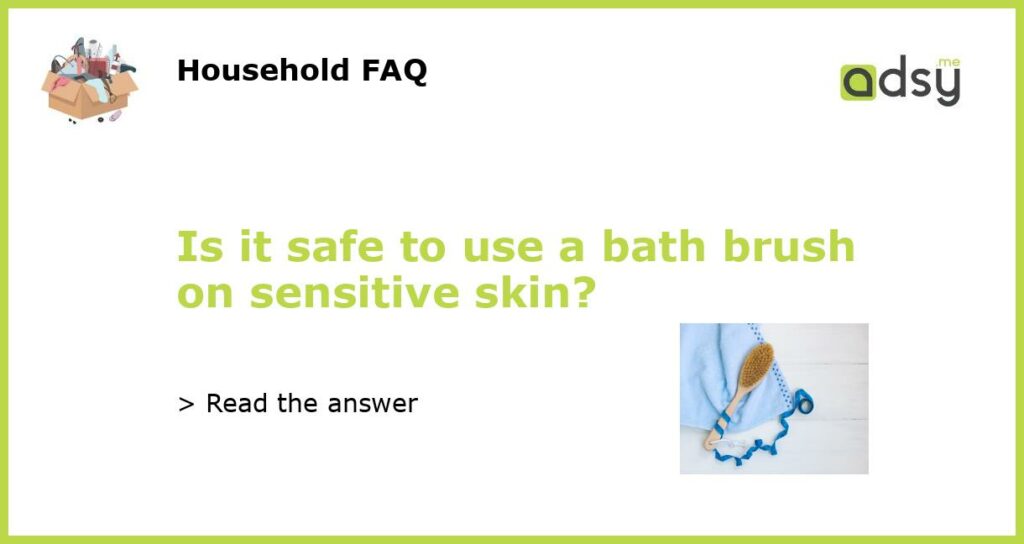Understanding Sensitive Skin
For many people, using a bath brush while taking a shower or bath is a regular part of their routine. However, for individuals with sensitive skin, this common practice can be a cause for concern. Sensitive skin is a common condition that often causes irritation, redness, dryness, and discomfort. This type of skin is more prone to adverse reactions to external factors such as certain fabrics, chemicals, temperature changes, and even certain types of food.
What Causes Skin Sensitivity?
The cause of skin sensitivity varies depending on the individual. Some people are simply born with a genetic predisposition to this condition, while others develop it as a result of exposure to external irritants or environmental factors. Common triggers include harsh soaps and detergents, chemicals found in skincare products such as fragrance oils and dyes, and even stress and hormonal changes.
The Risks of Using a Bath Brush on Sensitive Skin
While using a bath brush provides a number of benefits such as exfoliating and improving blood circulation, it can also pose a risk for individuals with sensitive skin. When the bristles of the brush come in contact with the skin, it can cause micro-tears, which can lead to irritation, inflammation, and further sensitivity. Additionally, using a bath brush can spread bacteria and germs, which can lead to infection, particularly if the skin is already compromised.
Alternatives for Sensitive Skin
If you have sensitive skin and are concerned about using a bath brush, there are alternatives that can provide similar benefits without the risks. A washcloth, for instance, can be used to gently exfoliate the skin without causing irritation. Additionally, using a mild soap or body wash specifically designed for sensitive skin can help minimize the risk of further irritation or dryness.
Taking Care of Sensitive Skin
If you have sensitive skin, it’s important to take extra care to avoid irritants and manage symptoms. This includes using gentle, fragrance-free cleaning products, avoiding hot water and harsh exfoliants, and protecting the skin from the sun with sunscreen or protective clothing. If you experience prolonged or severe symptoms, it’s important to seek medical advice from a dermatologist who can provide a customized treatment plan.






